
Key Takeaways:
- The article ranks the best health information technology associate’s degrees, with Peirce College and Fox Valley Technical College as the top two.
- Health information technology jobs are expected to grow 11% over the next four years, much faster than the average.
- These 2-year degrees teach skills in managing patient records, medical coding, and health information software.
- Look for accredited programs, especially those approved by CAHIIM, to prepare for RHIT certification.
- Salaries for health information technicians range from $35,520 to $43,470 per year on average.
Health Information Technology is a critical part of healthcare. The management of accurate patient records, assuring quality and confidentiality, and accessibility of patient health records are vital to the overall care of patients. Additionally, precise coding and documentation of patient care are necessary in health systems and physicians receive reimbursement from insurance companies and the federal government. A health information technology associate’s degree can be a great way to break into this rapidly growing field.
The field is growing rapidly and you can join it in less time than you may think. Associate degrees in Health Information Technology are offered as two-year education programs.
Earning an Associate of Applied Science (AAS) or Associate of Science (AS) from a community college or technical school will give you the tools necessary to become certified and find that perfect job.
(Note: Due to the Coronavirus pandemic, schools may be changing their enrollment policies and class offerings. Be sure to explore, or discuss with an admission advisor, your options.)
Our Method: Ranking the 25 Best Health Information Technology Associate’s Degrees
To rank the 25 Best Health Information Technology Associate’s Degrees, Best Degrees editors researched accredited, trusted programs of all kinds. From our initial pool, we ranked programs according to price, accreditation, reputation, and salary potential, using data from IPEDS and Niche, U.S. News and World Report, and other higher education rating publications.
1. Peirce College

Located in Philadelphia, Pennsylvania, Pierce College offers its Associate of Science in Health Information Technology degree 100% online or you can choose a blended option of online and classroom studies.
You’ll be taking 61 credit hours of courses and, if you have previous college credit, Peirce College will allow you to transfer up to 30 credit hours toward your degree. The curriculum is designed to provide you with the understanding and skills needed to work in a variety of healthcare settings.
Among the courses you’ll take are required courses in Application Software Fundamentals, Introduction to Ethics, Speech Communication, English Composition, Anatomy and Physiology, etc. Your major courses will include studies in Introduction to Health Information Management, Legal Issues in Health Information Management, Medical Terminology, Healthcare Reimbursement, ICD 9/10 CM Coding, and more. You’ll also benefit from a HIT Professional Practice Workshop and a Professional Practice Experience.
Accredited by the Commission on Accreditation of Health Informatics and Information Management Education (CAHIIM), this program can be completed in 36 months. Your degree will qualify you to sit for HIT certification through the American Health Information Management Association (AHIMA) or can be applied to a bachelor’s program (such as Peirce’s Health Information Administration program).
Fast Fact: Peirce College was founded in 1865
Degree Awarded: A.S.
Learn more about the Health IT Associate’s!
2. Fox Valley Technical College
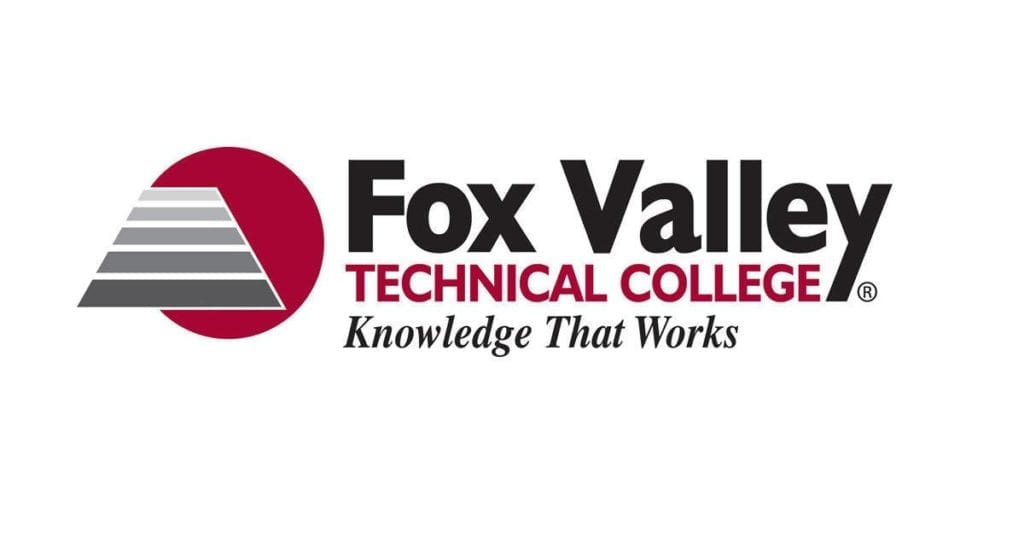
You can earn your CAAHIM-accredited Associate of Applied Science in Health Information Technology degree in 24 months from Appleton, Wisconsin’s Fox Valley Technical College.
This program will acquaint you with key elements of HIT requirements such as Electronic Health Records (EHR), reimbursement requirements, coding, information collection, Health Information Management (HIM), medical terminology, quality management, and more. You’ll also be asked to complete general education courses in basic anatomy, economics, introduction to psychology, communication, etc. A capstone project is necessary and you may participate in a clinical experience to practice what you’ve learned.
The program takes 61 credit hours and you can enroll full-time or part-time. Classes may be taken online or on the Appleton campus during days or evenings. If you qualify, Financial Aid is accepted toward the program’s tuition which is estimated to be less than $10,000 (not including books and fees).
Fast Fact: 97% of HIT graduates are employed within 6 months of graduation
Degree Awarded: A.A.S.
Learn more about the Health IT Associate’s!
3. North Dakota State College of Science
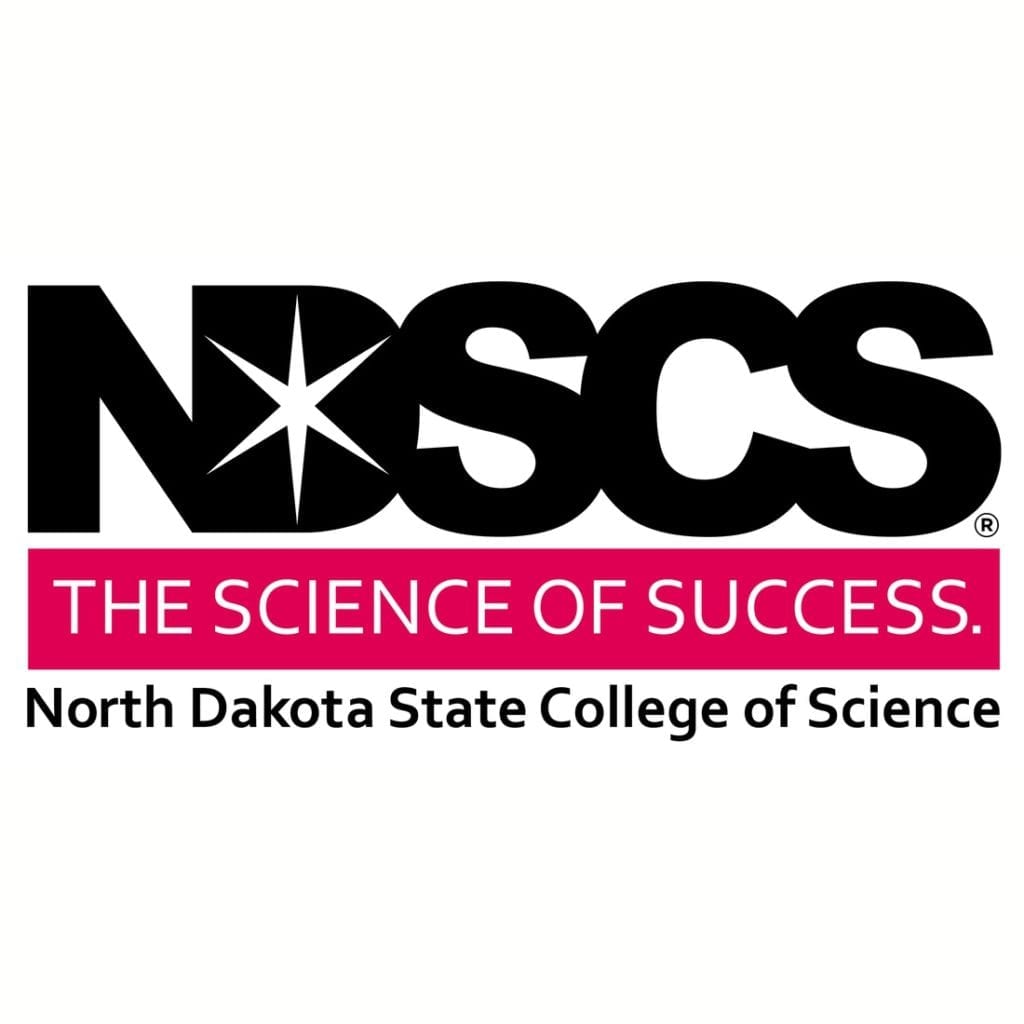
You have two options with this A.A.S Health Information degree from North Dakota State College of Science. The degree is offered online or on the Wahpeton campus.
The only CAHIIM accredited Health Information program in North Dakota, the curriculum for this degree includes studies in Basic Procedure Coding, Healthcare Delivery Systems, Basic Diagnosis and Basic Procedure Basic Diagnosis Coding, Healthcare Quality Management, Computer Applications in Healthcare, as well as a virtual Professional Practice experience, including an onsite practicum. You’ll also be required to take general education courses in Anatomy and Physiology, Medical Terminology, Public Speaking, as well as College Composition.
This program requires 69 credit hours of study. If you have prior college courses, you may be able to transfer them to this program so be sure to check with the admissions office. The A.A.S. degree hours will typically transfer if you choose to pursue a bachelor’s degree later.
Fast Fact: NDSCS, founded in 1903, is one of the oldest two-year, residential colleges in the country
Degree Awarded: A.A.S.
Learn more about the Health IT Associate’s!
4. Harper College
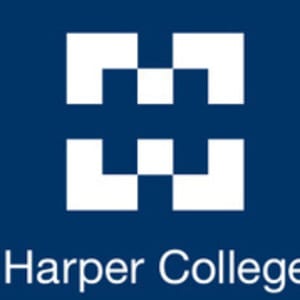
Here’s a 60-credit hour A.A.S. HIT degree, accredited by CAHIIM that will qualify you to sit for the American Health Information Management Association (AHIMA) exam for Registered Health Information Technician (RHIT) credentialing. Harper College graduates have an 82% first-time exam pass rate as compared to the national 67% pass rate.
Located in Palatine, Illinois, the HIT program at Harper College includes general education studies in topics such as composition, anatomy and physiology, medical terminology, as well as mathematics. Your major coursework will cover reimbursement, coding, health information law, EHR, HIT management, etc. There’s also a 160-hour externship and a final capstone project included in the degree.
Estimated tuition at Harper College ranges from $134-$466 per credit hour, depending on whether you live “in-district,” “out-of-district,” or out-of-state. Additional fees and charges will apply. You may qualify for Financial Aid and will need to file a Free Application for Federal Student Aid (FAFSA).
Fast Fact: Niche rates Harper College #24 of 871 Best Community Colleges in America
Degree Awarded: A.A.S.
Learn more about the Health IT Associate’s!
5. Brookhaven College

You can graduate with a HIT A.A.S degree within four semesters from the Brookhaven Health Information Technology program of Dallas College.
This 60-credit-hour curriculum includes prerequisites in Medical Terminology, Anatomy and Physiology for Medical Assistants, Computer Applications, and Composition. As you move into your major, you’ll study Health Data Content and Structure, Coding and Classification Systems, Health Care Delivery Systems, Coding and Reimbursement Methodologies, as well as an RHIT Competency Review course. The course of study is intended to prepare you for entry-level positions in Health Information.
The college is accredited by the Southern Association of Colleges and Schools Commission on Colleges (SACSCC). Depending on your residency status, tuition for this program is estimated to range from $4,740-$12,000. If you live in Dallas County, the Dallas Promise program will cover the tuition cost for your associate degree for up to three years. Scholarships and financial aid are available for qualified students.
Fast Fact: Brookhaven College is one of seven schools of the Dallas County Community College District (DCCCD)
Degree Awarded: A.A.S.
Learn more about the Health IT Associate’s!
6. Lamar Institute of Technology
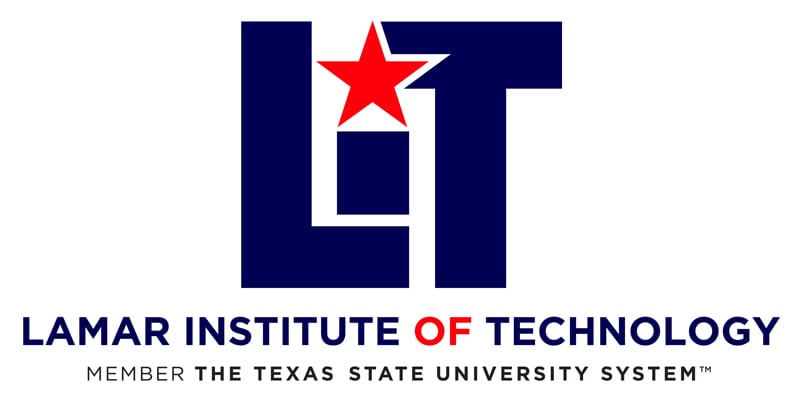
If you’re in the Beaumont, Texas area, you may want to investigate the A.A.S. Health Information Technology program at Lamar Institute of Technology, a member of the Texas State University System.
This degree requires 60 credit hours of study. You’ll take 44 credit hours of lecture and 67 lab hours to complete the program. Among the courses you’ll take are general education courses (Sociology, Fine Arts, Business Computers Applications, etc.). Your major classes will teach you Coding and Insurance, Legal and Ethical Aspects of Health Information, Pathophysiology and Pharmacology, Health Information Organization and Supervision, Coding and Reimbursement Methodologies, as well as Practicum experiences and an RHIT Competency Review.
If you’re a Texas resident, you’ll be assessed $95 per semester hour in tuition charges. Out of state students are charged $517 per semester hour. Financial Aid is available for qualified students.
Fast Fact: Founded in 1923 as South Park Junior College
Degree Awarded: A.A.S.
Learn more about the Health IT Associate’s!
7. Howard Community College
If you live in the Columbia, Maryland area, you may want to consider the A.A.S in Health Information Technology at Howard Community College.
You can earn this 60 credit hour curriculum in about 24 months. The program requires studies in targeted general education courses such as College Composition, Statistics, Critical and Creative Thinking, etc. Classes in the HIT major includes Medical Terminology, Basic Diagnostic and Procedure Coding, Healthcare Delivery Systems, Human Biology, etc. You’ll also take Professional Practice in Health Information Technology.
Howard Community College is accredited by the Middle States Commission on Higher Education (MSCHE). Tuition ranges from $142-$292 per credit hour depending on residency status.
Fast Fact: Ranks in Niche’s top 50 of Best Community Colleges in America
Degree Awarded: A.A.S.
Learn more about the Health IT Associate’s!
8. Westchester Community College
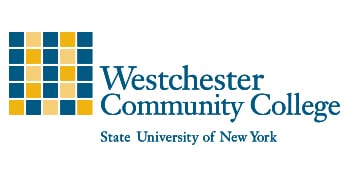
Part of the State University of New York, Westchester Community College in Valhalla, NY, offers a 63 credit hour A.A.S. in Health Information Technology degree.
This program focuses on leadership, administrative and management. You’ll take 18 hours of general education credits in Basic Communication, English, Social Sciences, History, etc. prior to the 45 hours required for the major. Among the courses you’ll take in HIT are studies in Basic Pathophysiology, Advanced Health Information, diagnostic and procedure coding, Health Care Reimbursement, Introduction to Health Information Management, Medical Terminology, Healthcare Statistics and Research, etc. There’s also two Professional Practice Experiences in the curriculum.
Tuition at WCCC is reasonable, ranging from $190-$490 per credit, depending on your residency status. Fees and and other charges not included. WCCC is accredited by the Middle States Commission on Higher Education (MSCHE).
Fast Fact: WCCC was founded in 1946 and now has over 24,000 enrolled students each year
Degree Awarded: A.A.S.
Learn more about the Health IT Associate’s!
9. Weber State University
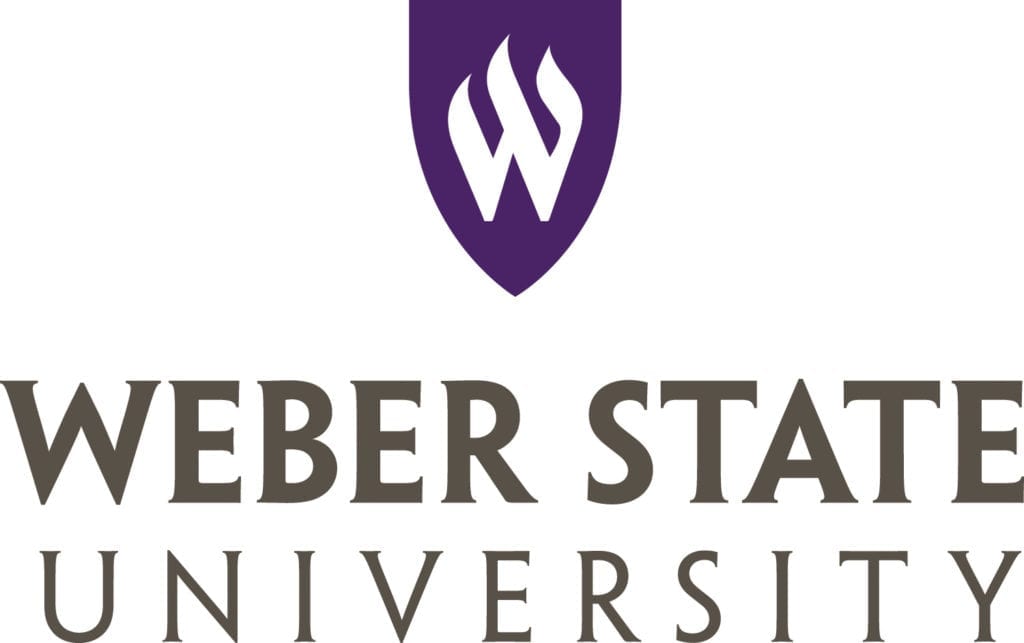
Here’s an A.A.S. in Health Information Technology degree you can complete online. This program is accredited by CAHIIM and will prepare you to sit for the Registered Health Information Technician (RHIT) credentialing exam.
The program requires 63 credit hours and can be completed in 24 months or so. Core coursework will include Diagnosis Coding, Healthcare Reimbursement, Introduction to Health Information Systems & Settings, ICD-10-PCS Coding, Health Informatics, Microcomputer Applications, as well as Professional Experiences in Practice management and coding. Prior to your Professional Experience, you’ll need to complete a drug screen, criminal background check, and immunization.
You’ll become acquainted with technical and legal responsibilities with HIT in health systems, hospitals, physician offices, clinics, etc.
Fast Fact: U.S. News and World Report rates Weber State University at #40 in its Top Public Schools ranking
Degree Awarded: A.A.S.
Learn more about the Health IT Associate’s!
10. Front Range Community College

Westminster, Colorado’s Front Range Community College offers a 64 credit hour A.A.S. in Health Information Technology degree you can complete in four semesters.
The curriculum and program is accredited by the CAHIIM and concentrate on the science of health information administration and management, as well as the clinical, legal, and reimbursement aspects. Among the courses you’ll take are Health Information Management Science, Health Data Management & Information Systems, ICD Coding, Legal Aspects for Health Records, etc. The program completes with a capstone project as well as a Health Information Practicum.
You’ll be eligible to sit for the RHIT exam and the program’s first-time exam pass rate is 84% compared to the national average of 70%. Front Range Community College publishes the two-year tuition cost for the program to be $9,673.
Fast Fact: Niche considers Front Range Community College #6 of 12 Best Community Colleges in Colorado
Degree Awarded: A.A.S.
Learn more about the Health IT Associate’s!
11. Des Moines Area Community College

If you’re looking for a well-rounded A.A.S. in HIT, and live in the area, you may want to explore this program at Des Moines Area Community College.
This program combines health IT, computers, business, and health sciences, along with practical experiences, in its 67 credit hour curriculum. Among the courses you’ll take are Information Computing, Medical Insurance, Pharmacology for IT, Structured System Analysis, Anatomy and Physiology for Allied Health, Data Security for Health IT, Reimbursement Methods, Legal Aspects of Health Information, Quality Management, and more. You’ll also take some general education courses in areas such as English, math, psychology, composition, and such. Professional Experiences in healthcare settings will give you real-world experience in the handling of health information.
Des Moines Area Community College tuition is estimated at $170 per credit hour for Iowa residents. DMACC has the lowest tuition charges in Iowa. The school is accredited by the Higher Learning Commission (HLC).
Fast Fact: DMACC is Iowa’s largest community college
Degree Awarded: A.A.S.
Learn more about the Health IT Associate’s!
12. Dakota State University

Here’s an online HIT Associate degree you can complete in 64 credit hours.
Accredited by the CAHIIM, this program will prepare you to sit for the Registered Health Information Technician (RHIT) exam. Among the courses you’ll take are Introduction to Health Information Management, Legal Aspects of Health Information, Basic Foundations Health Data Systems, Health Information Management Quality Management, Practical Coding Application, etc. The curriculum also includes general education courses in communication, English, biology, arts and humanities, and more. Also included in the degree requirements are practical work experiences which for online students can be completed virtually.
DSU is a member of the State Authorization Reciprocity Agreement (SARA) and the school suggests you check to be certain your state qualifies for you to attend online. You may want to review additional information at DSU online. Online tuition, per credit hour, is estimated at $351-$461 depending on your residency status.
Fast Fact: U.S. News and World Report rates DSU #18 in its Top Public Schools ranking
Degree Awarded: A.S.
Learn more about the Health IT Associate’s!
13. McHenry County College
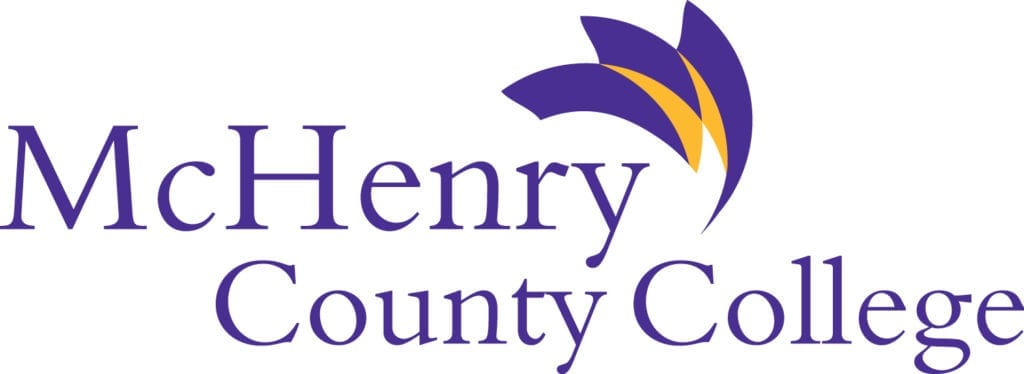
This is another HIT Associate of Applied Science degree that is accredited by the CAHIIM. The RHIT, first-time exam pass rate for MCC’s program graduates is 100% (the national average is 75%).
You can complete this 60 credit hour degree in 64 weeks. Similar to other degrees, MCC’s core HIT program requires studies in ICD coding, health delivery systems, reimbursement, Electronic Health Records (EHR), healthcare management, law and ethics, research and statistics, and a practicum. Additional general education courses in communications, humanities, math, physical or life sciences, and technology are also part of the overall program curriculum.
If you live in the McHenry Community College district, the cost of this program is $11,789, with out-of-district and out-of-state costs from $27,789-$33,307.
Fast Fact: MCC is located in Crystal Lake, Illinois
Degree Awarded: A.A.S.
Learn more about the Health IT Associate’s!
14. Monroe Community College
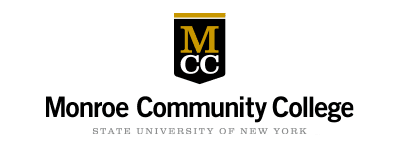
Part of the State University of New York (SUNY) system, Monroe Community College is located in Rochester. MCC offers an A.A.S. in HIT which is also CAHIIM accredited. The program website boasts a 100% graduation rate (2017).
Under the college’s Health Professions Department, this 64 credit hour health information technology associate’s program will help you qualify for the RHIT exam. Studies include topics in healthcare documentation, procedural and diagnostic ICD 10 designations, quality management, healthcare records compliance and legal issues. Other subjects involve pathophysiology, anatomy and physiology, medical terminology, and more. You’ll also be required to complete two Professional Practice experiences in a healthcare setting.
New York residents pay approximately $196 per credit hour in tuition and out-of-state residents pay $392. If you’re a New York resident, you might qualify for the NYS Excelsior Scholarship which may waive tuition costs for you. This degree can allow you to enter as a junior at a four-year university if you choose.
Fast Fact: MCC has over 11,000 enrolled students
Degree Awarded: A.A.S.
Learn more about the Health IT Associate’s!
15. Ozark Technical Community College

You can choose between online and classroom attendance with this HIT program from Ozark Technical Community College in Springfield, Missouri.
Accredited by CAHIIM, the A.A.S. degree covers required studies in medical coding, reimbursement, quality management, healthcare information systems, microcomputer applications, HIT applications, technical writing, organization and supervision in healthcare, and statistics. There is also a Professional Practice Experience to blend the classroom and clinical experience. A criminal background check may be required prior to the practice experience.
The total program cost for in-district students, according to the website, is $16,505, which includes the general education class requirements. If you’re able to transfer credits to this program and only take HIT classes, the total cost is $11,390. Out-of-District students program cost is $13,730 for HIT courses only and $20,069 otherwise.
Fast Fact: Although there is no athletics program, the mascot for OTCC is Ozzy the Eagle
Degree Awarded: A.A.S.
Learn more about the Health IT Associate’s!
16. Miami Dade College
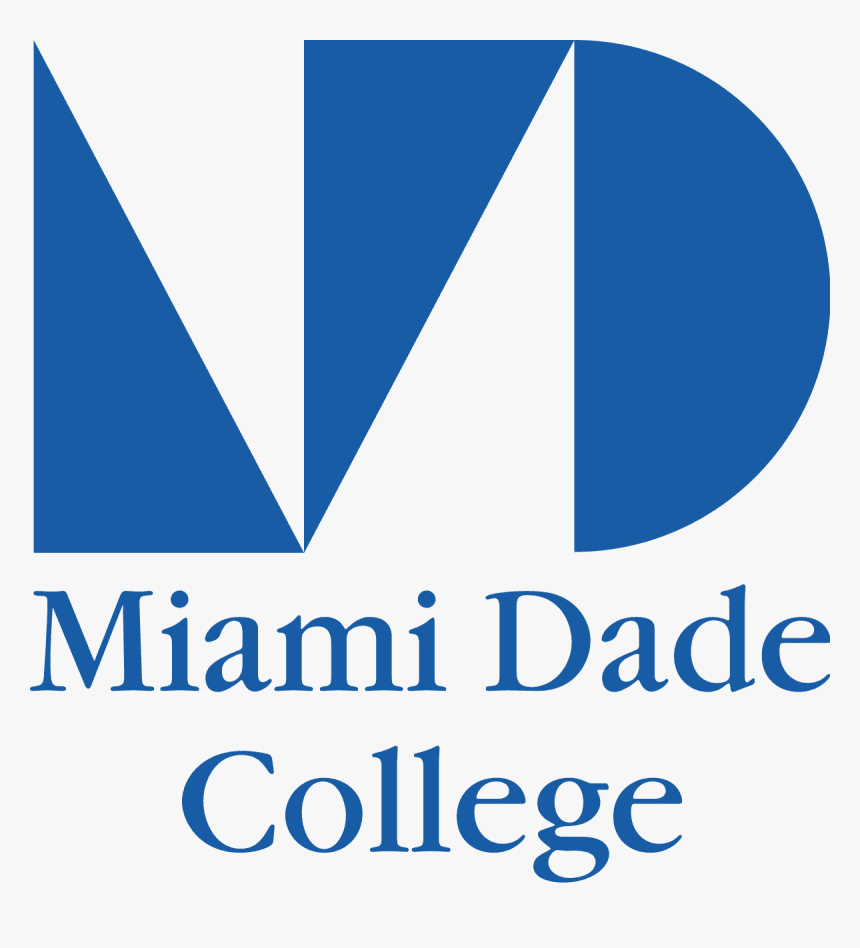
If you live in Miami, you can earn an Associate of Science in Health Information Technology in a little over two years at Miami Dade College.
You’ll take CAHIIM accredited courses in this 70 credit hour health information technology associate’s, including general education courses in English, speech communication, critical thinking, ethics, natural science classes (human anatomy, physiology), and an overview of health care. Major coursework involves studies in Introduction to Health Information Technology, Legal Aspects of Health Care, Health Record Technology & Data Collection (including lab), Current Procedural Terminology Coding, Statistics, Electronic Health Record (EHR), and more. Three Professional Practice Experiences are required.
Estimated tuition costs at Miami Dade College is stated to be $8,274. According to the website, your first step in applying for this program is to talk with a Medical Campus advisor and complete an application in person on the campus. Due to the rigorous demands of the HIT program, the college recommends you limit your work hours to 20 hours per week. The program qualifies for federal financial aid.
Fast Fact: During the 2012-2013 academic year, Miami Dade College awarded more associate degrees than any other community college in the country
Degree Awarded: A.S.
Learn more about the Health IT Associate’s!
17. Macomb Community College
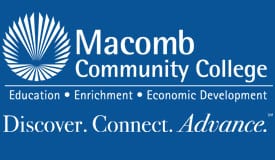
CAHIIM accredits the Health Information Technology program at this Michigan community college.
You can earn your A.S. degree 100% online or as a hybrid of online and in-class studies. The wide range of topics covered in this program includes EHR for Health Information Management, Business Communications, Introduction to Health Information Management, Organization Performance for Health Information Management Professionals, International Classification of Disease (ICD) Coding – Beginning and Intermediate, Professional Practice Experience, Medical Terminology, Introduction to Ethics, Legal Aspects of Health Information Management, etc.
These courses will allow you to sit for the RHIT certification exam. Macomb Community College has an impressive 100% exam pass rate (2018) and an 80% graduation rate (2019). Tuition for Macomb County residents is $102 per credit hour, $190 for Michigan students outside of Macomb County, and $242 for out-of-state students.
Fast Fact: MCC has an average student enrollment of 38,000 students each year
Degree Awarded: A.S.
Learn more about the Health IT Associate’s!
18. Southwestern Community College

The A.A.S. Health Information Technology degree at this Sylva, North Carolina college will prepare you to supervise and manage all aspects of medical records and health information.
This 76 credit hour program can be completed in five semesters and will qualify you to sit for the RHIT certification exam of the American Health Information Management Association (AHIMA). As with similar programs, you’ll study medical terminology, anatomy and physiology, research, health data systems, law and ethics, ICD coding, informatics and EHR, reimbursement, and professional practice experience.
In 2019, 100% of the HIT students at Southwestern Community College graduated and had a RHIT exam pass rate of 80% (above the national average). Estimated tuition costs at SCC range from $79 per credit hour for NC students and $271 per credit hour for out-of-state students.
Fast Fact: SCC is ranked by Niche at #245 of 871 in its Best Community Colleges in America
Degree Awarded: A.A.S.
Learn more about the Health IT Associate’s!
19. Missouri State University-White Plains

It will take you 63 credit hours to complete this A.A.S. HIT degree from Missouri State White Plains. Completing this degree will allow you to sit for certification exams from the American Association of Professional Coders (AAPC).
This 63 credit hour curriculum requires fundamental courses in English, math, history, and psychology. Additionally, you’ll need two computer information systems courses. Your main HIT classes will involve management of health records, procedure and diagnostic coding, Electronic Health Records, medical terminology, reimbursement methods, legal and ethical considerations in HIT, as well as professional practice experience, among others.
If you’re a Missouri resident, your tuition will be $4,500 per academic year and non-residents will pay $8,520. Besides federal financial aid, Missouri State University-West Plains offers scholarships and participates in the Missouri A+ Scholarship and other programs, including veteran assistance.
Fast Fact: Missouri State University-West plains is accredited by the Higher Learning Commission (HLC)
Degree Awarded: A.A.S.
Learn more about the Health IT Associate’s!
20. Chattanooga State College

This Tennessee college currently holds CAHIIM accreditation for its Health Information Management program and its graduates have a 75% RHIT exam pass rate. Graduates are also eligible to take the Certified Professional Coder (CPC) exam. (The school will transition from CAHIIM accreditation to join the AAPC (American Association of Professional Coders) in May 2021).
A two-year program, the 66 credit hour studies include general education courses. Major study courses will include legal aspects of HIM, HIM computer aspects, computer applications, ICD coding, analysis and statistics, quality improvement, etc. Professional Practice experiences are required during your second year of study. You can substitute one practice experience with an advanced coding course.
Chattanooga State has three campuses located in Chattanooga, Dayton, and Kimball, Tennessee. The school also offers an Early College program for high school students. HIM program costs for Tennessee residents is estimated at $13,960 and nonresidents can expect to pay around $41,002.
Fast Fact: Chattanooga State awards in excess of $1 million in scholarships
Degree Awarded: A.A.S.
Learn more about the Health IT Associate’s!
21. Durham Technical Community College

Here’s a Health Information Technology A.A.S. degree you can take on-campus in Durham, North Carolina or online.
This CAHIIM accredited program requires 73 credit hours of coursework. The health information technology associate’s program offers typical HIT studies in medical terminology, coding, statistics, computer introduction, anatomy and physiology, health information management basics, medical terminology, as well as quality management and more. You can complete the degree in 18-19 months and it will prepare you to sit for the RHIT exam (the department reports a 100% first time exam pass rate for its 2019 graduates).
Durham Tech offers a dual enrollment in the Career and College Promise program for qualifying North Carolina high school students. The estimated tuition for this A.A.S. program, according to the school, is $5,580.
Fast Fact: Recent high school graduates from Durham or Orange counties in North Carolina can receive up to $1,000 each year for two years
Degree Awarded: A.A.S.
Learn more about the Health IT Associate’s!
22. Idaho State University

Idaho State University accepts only 20 students each August for their Health Information Technology A.A.S. degree. The program is CAHIIM accredited.
A 69 credit hour health information technology associate’s degree is a combination of general education and major-specific courses. The HIT requirements include studies in Informatics Technology, ICD-10 and CPT Coding, anatomy and physiology, law and ethics, reimbursement methodologies, as well as supervised Professional Practice experiences. These courses are available online, taught by faculty with real-world experience, and will qualify you to sit for the RHIT exam. 96% of ISU graduates are employed or pursuing advanced degrees over five years.
The total cost for the A.A.S. is $19,024. First-time students are automatically considered for scholarships regardless of residency and financial aid is available for eligible students.
Fast Fact: Out of 1,603 schools, Niche ranks ISU #403 in its Colleges with the Best Professors in America ranking
Degree Awarded: A.A.S.
Learn more about the Health IT Associate’s!
23. Tyler Junior College

This hybrid Health Information Technology associate degree requires 60 credit hours for completion with 43 of those hours in your HIT program.
You’ll study medical terminology, health information systems, computer applications, pathophysiology, elementary statistics, basic and advanced coding, quality assessment, legalities and ethical components of HIT, healthcare reimbursement systems, as well as a RHIT competency review course. Foundational education courses include English composition, humanities, social or behavioral science, history, natural science and math, etc.
This school offers career consultation and assessment based on your interests and assists in building your resume. TJC has a robust scholarship program with over $4 million in annual scholarships possible for qualifying students enrolled in at least 12 credit hours.
Fast Fact: Tyler Junior College opened in 1926
Degree Awarded: A.A.S.
Learn more about the Health IT Associate’s!
24. Hazard Community and Technical College

CAHIIM accredits this Hazard, Kentucky school’s Associate’s Degree in Health Information Technology 57 credit hour program, making you eligible for the RHIT exam.
A sample of the curriculum shows an introduction to computers, human anatomy and physiology, reimbursement methodologies, management and statistics, clinical classifications, productivity software, with a general practicum experience, as well. Additional courses will include some general education studies in psychology, English composition, sociology, etc. Classwork will be enhanced with work in the campus laboratory as well as area healthcare facilities.
Tuition at HCTC is a manageable $170 each credit hour for Kentucky residents, $358 for students from contiguous counties, and $627 for out-of-state students. The school offers the standard financial aid programs (including Work-Study) as well as scholarship and grant opportunities for qualified students.
Fast Fact: HCTC offers over 200 degrees, certificates, and diplomas, with Healthcare Information Technology being one of its Featured Academic Programs
Degree Awarded: A.S.
Learn more about the Health IT Associate’s!
25. Miller-Motte College

This hybrid Healthcare Information Technology degree offered in Augusta, Georgia by Miller-Motte College will take you about 18 months to complete.
As with other programs, you’ll study a range of HIT subjects such as CPT coding, insurance billing, health information systems, etc. as well as acquaint you with the various software programs frequently used in the field. Among the systems you’ll study are Electronic Health Records (EHR), specific healthcare document management software, billing, and transcription software, etc. You’ll qualify for entry-level administrative and analytical positions in a variety of healthcare facilities.
Miller-Motte is accredited by the Accrediting Commission of Career Schools and Colleges (ACCSC) and operates in 11 locations that are considered branch campuses of Tulsa, Oklahoma’s Platt College. Miller-Motte is a for-profit institution. Tuition is estimated at $20,140 per academic year.
Fast Fact: Miller-Motte was started in 1916 in Wilmington, NC as a small stenographer school
Degree Awarded: A.S.
Learn more about the Health IT Associate’s!
Why Should I Get a Health Information Technology Associate’s Degree?
This can be a very satisfying career, if you’re detail-oriented, enjoy working with computers, and want to work in one of the largest industries in the United States. The Bureau of Labor Statistics estimates people with a Health Information Technology or Management degree will see an 11% job growth between 2018-2028 which is much faster than other professions.
The best way to qualify for a career in this field is to earn an Associate’s degree in health information technology. Later, if you want, you may be able to enter, as a junior, a four-year bachelor’s Health Information Technology program.
Employers will look for applicants who have either an Associate of Science (AS) or Associate of Applied Science (AAS) degree when filling its health information positions. Add credentialing through the American Health Information Management Association as a Registered Health Information Technician (RHIT) and you’ve greatly improved your chances for employment. Courses in an Associate’s HIT degree will prepare you to sit for the RHIT exam.
A two-year HIT/HIM degree will provide you the skills necessary to manage patient records and help physicians in developing treatment plans, track patient outcomes, as well as to provide data used in reimbursement. Most Associate program will also give you skills in communication, writing reports, understanding of statistics, etc.
In short, healthcare facilities look for qualified Health Information Technicians who have a broad understanding of medical records keeping and healthcare computer software programs. An Associate’s degree will get you there.
How Do I Choose a Health Information Technology Program?
Healthcare is one field that appreciates education and certification. That holds true not only for those involved in direct patient care, but for the allied health professionals as well.
Considerations in choosing a health information technology associate’s HIT/HIM program will depend on several things, such as your career and salary goals, your timeframe, finances, and convenience.
Let’s unpack some of those considerations.
Accreditation
It’s probably a sound idea to explore programs that hold accreditation from the Commission on Accreditation for Health Informatics and Information ManagementEducation (CAHIIM). This accreditation shows the program meets quality standards for the field and that the program offers the necessary skills and training for you to gain certification.
Some HIT/HIM programs aren’t CAHIIM accredited, but that doesn’t mean you should discount them. However, you should be sure the program holds accreditation from a U.S. Department of Education approved agency, such as the Higher Learning Commission (HLT) or regional accreditation from an agency like The Southern Association of Colleges and Schools Commission on Colleges (SACSCC) and others.
Certification
Certification will help you not only get a job in medical records management, but it will also help in your salary offer.
CAHIIM accreditation assures you that you’re qualified to sit for the Registered Health Information Technician (RHIT) exam offered by the American Health Information Management Association (AHIMA). This is the gold standard certification for the field.
Other certifications in this career include: Certified Coding Associate (CCA), Certified Coding Specialist (CCS), Certified Tumor Registrar (CTR), etc. You can learn more about certifications on the AHIMA website.
Timeframe/Cost
If you’re wanting to enter the HIT/HIM field, but want to do it sooner rather than later, you’ll want to consider a two-year (or less) Associate’s degree. There are Bachelor’s program in HIT/HIM available but an Associate’s degree is faster and will get you in the door. Later, if you choose to earn your undergraduate degree, you’ll have two years of study to apply to a four year program. You can enroll for full-time or part-time studies.
You’ll want to see what a program costs and whether you qualify for any assistance in paying for it. One way is to file the Free Application for Federal Student Aid (FAFSA®). Most community colleges and technical schools will use the FAFSA to determine your eligibility for federal assistance as well as school scholarships or grants.
Convenience
If you need to continue to work in your current job, you may want to find a program which is offered online. Online programs offer the exact degree as on-campus students receive and with the same faculty. These online programs are accredited.
How is the Job Market for Health Information Technology?
In a word…excellent.
As stated before, the Bureau of Labor Statistics estimates an 11% job growth in this field over ten years which is much faster than average.
Your job prospects improve with certification. Employment for HIT/HIM can be found in acute and non-acute healthcare settings. Hospitals, physician offices, outpatient clinics, healthcare systems, insurance companies, and others utilize trained Health Information Technicians.
Salaries. HIT or HIM technicians, according to the BLS, can earn between $35,520-$43,470 annually. PayScale records an average national salary of $35,358 for HIT employees and $41,375 for RHIT certified.
Keep in mind when considering compensation benefits such as paid time off, sick leave, health insurance, and retirement benefits.
Related Rankings:
15 Best Online Health Information Technology Associate’s Degrees
10 Fastest Online Health Information Technology Associate’s Degrees